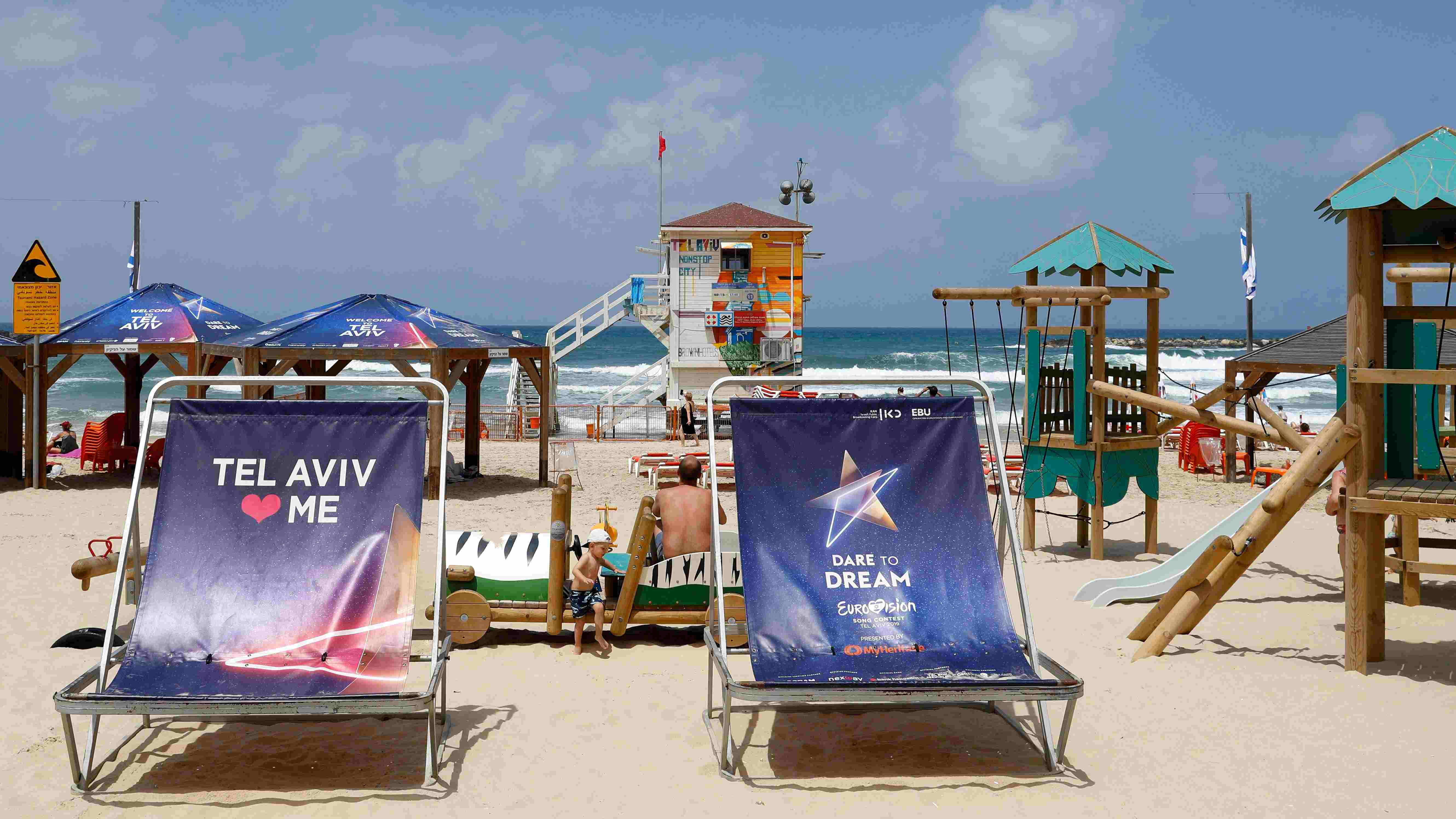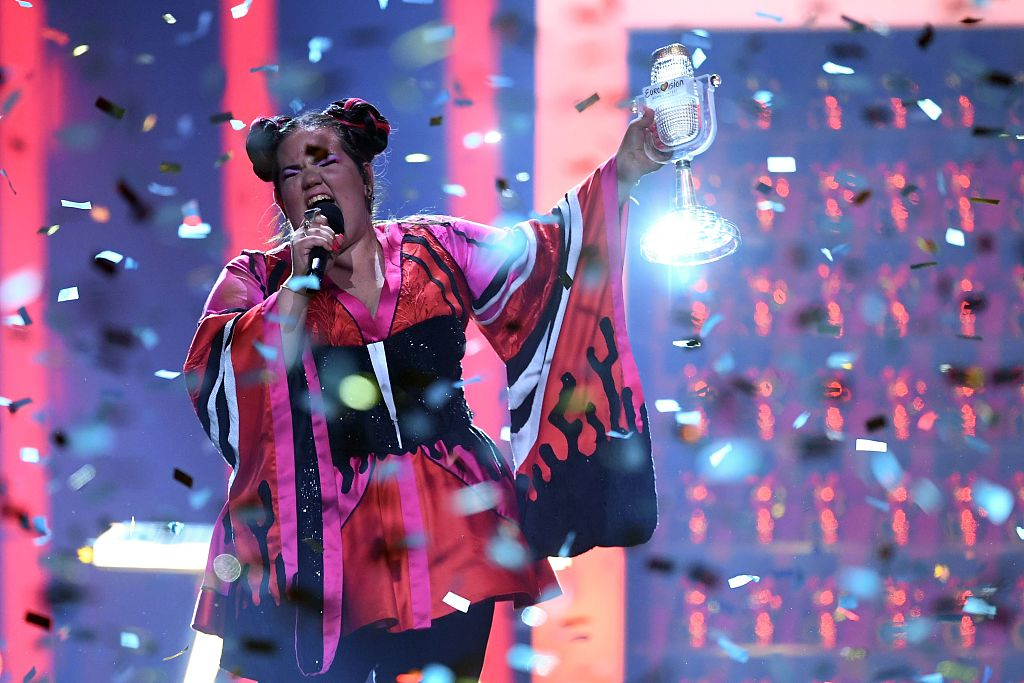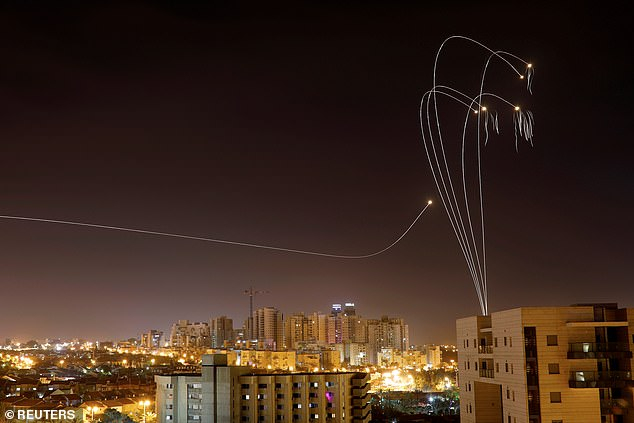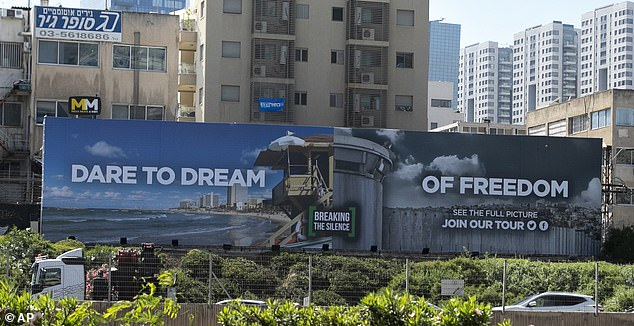
World
18:20, 18-May-2019
Glitz meets politics: Can Eurovision revamp Israel's global image?
By Zhou Minxi

Tel Aviv is in the mood for the biggest party of the year. Festivities kicked off in Israel's biggest city this week as the country plays host to the 64th edition of the Eurovision song contest. Artists representing 41 countries and thousands of tourists have come to the Middle East for the grand final of the most popular international live music competition on Saturday.
The Eurovision Song Contest brings together mainly European countries for an annual musical spectacle since 1956. Over the years, it has been known for kitschy entertainment and a chance for audiences from 41 countries to cheer for and make fun of one another on an international level. Some non-European countries, including Israel, can also enter the competition as members of the European Broadcasting Union (EBU), which is responsible for the event.
For Israel, which won the competition last year, it is an opportunity to showcase itself as a fun-loving and open-minded place. But to many people in the world, the host country has an image problem, one that it appears to be very much aware of.
Light entertainment collides with heavy politics
Every year ahead of the Eurovision finale, talks in the media are usually about which country has come up with the most ridiculous act. This year, it is rocket attacks and protests.
Eurovision 2019 is embroiled in controversy from the start despite the show being supposedly apolitical. Immediately after Israeli singer Netta Barzilai's win in Lisbon last year, the prospect of the 2019 competition being held in Jerusalem, the holy city at the center of the Israeli-Palestinian conflict, drew attention to the contested region. Barzilai, who earned her country the honor of hosting this year, had reportedly been targeted over the past year by pro-Palestinian activists, who have been calling for boycotting the event.

Israeli singer Netta Barzilai performs after winning the final of the 63rd edition of the Eurovision Song Contest 2018 at the Altice Arena in Lisbon, May 12, 2018. /VCG Photo
Israeli singer Netta Barzilai performs after winning the final of the 63rd edition of the Eurovision Song Contest 2018 at the Altice Arena in Lisbon, May 12, 2018. /VCG Photo
Organizers eventually decided on the less political, LGBT-friendly coastal city of Tel Aviv. But it did little to quell angry protesters, who accuse Israel of using the song contest to distract the world from its treatment of Palestinians.
The pro-Palestinian BDS movement, which promotes boycotts, divestment and sanctions against Israel, has urged artists to pull out of the contest. Dozens of celebrities sympathetic to the Palestinian cause, including Roger Waters from Pink Floyd and designer Vivienne Westwood, signed a letter calling for the contest to be moved elsewhere. Demonstrations erupted outside television studios at national finals in a number of countries.
The glitzy songfest comes at a tense time in the region following deadly violence two weeks ago, when hundreds of rockets were fired across the border from Gaza. Israel has beefed up security and deployed Iron Dome air defense batteries throughout the country in an effort to not scare away Eurovision performers and tourists. The contest, which started on May 14, also coincided with the Palestinian "Nakba Day" anniversary, which saw more than 60 Gazan protesters killed last year.

Iron Dome anti-missile system firing interception missiles as rockets are launched from Gaza towards Israel as seen from the city of Ashkelon. /Reuters Photo
Iron Dome anti-missile system firing interception missiles as rockets are launched from Gaza towards Israel as seen from the city of Ashkelon. /Reuters Photo
Speaking to reporters in Jerusalem this week, Barzilai said the song contest is "a festival of light" bringing together people from all countries, ethnicities and religions. "For people to boycott light is spreading darkness," she said.
All 41 participating countries have sent their entrants to Tel Aviv. Some of them, like France's Bilal Hassani, have defied death threats to perform in the Jewish state, while others, like Iceland's Hatari, have vowed to use the platform to criticize it. In a major show of support for the host, pop star Madonna will perform at tonight's final.
More than a land of 'war and occupation'
Israel's national broadcaster KAN, which co-hosts the competition, decided to tackle the controversy head-on by releasing a self-deprecating promo video making light of the stereotypes of Jews as "greedy" and the country as a land of "war and occupation." One of the singers acting as a tour guard in the video even has the words "I love Iron Dome" printed across the front of his t-shirt.
After it was posted on social media, the video prompted a flood of criticism from viewers at home and abroad, who said it promotes anti-semitic tropes. KAN responded that it was intentionally satirical: "We know our flaws, and we're not ashamed to laugh at all of them."
Determined to not let recent events cast a shadow over the song contest, Israel has been pulling out all stops to brand itself as a tourist destination. The official slogan for Eurovision 2019, "Dare to Dream," is seen everywhere on the beaches of Tel Aviv, where local youths volunteer to help visitors.

A billboard in Tel Aviv showing two sides of Israel reads, "Dare to Dream of Freedom," a wordplay using this year's official Eurovision slogan. /AP Photo
A billboard in Tel Aviv showing two sides of Israel reads, "Dare to Dream of Freedom," a wordplay using this year's official Eurovision slogan. /AP Photo
Even as revelers paint the town red over the past week, the political undercurrent is too strong to keep a lid on. A publicity war quietly rages on as officials play whack-a-mole with online bots and fake social media accounts spamming all Eurovision posts with pro-Palestinian messages and calls for a boycott.
On Tuesday, the national broadcaster's webcast of the semi-final was hacked with images of explosions, which it blamed on Hamas militants.
Tourists are greeted by a protest billboard put up by the Israeli NGO "Breaking the Silence" questioning the country's policies in Gaza and West Bank on their way from the Ben-Gurion International Airport to Tel Aviv upon arrival.
"There's definitely more controversy around Israel's contest than past ones," said John Kennedy O'Connor, who wrote the official history of Eurovision.
It is not the first time Israel has hosted the song contest. The event was held twice in Jerusalem in 1979 and 1999 respectively without major controversy.
"This will be the best Eurovision in history," the CEO of KAN told a press conference last month. Last year, a reported 189 million viewers tuned in for the Eurovision final.
Even if it won't do much to sway deeply divided public opinions to the host country's favor, one thing is certain now: Europe's favorite campy fest this year is anything but apolitical.
(Top image: A general view of Tel Aviv's seaside. The Israeli city will host the Eurovision song contest on May 18, 2019. /VCG Photo)

SITEMAP
Copyright © 2018 CGTN. Beijing ICP prepared NO.16065310-3
Copyright © 2018 CGTN. Beijing ICP prepared NO.16065310-3